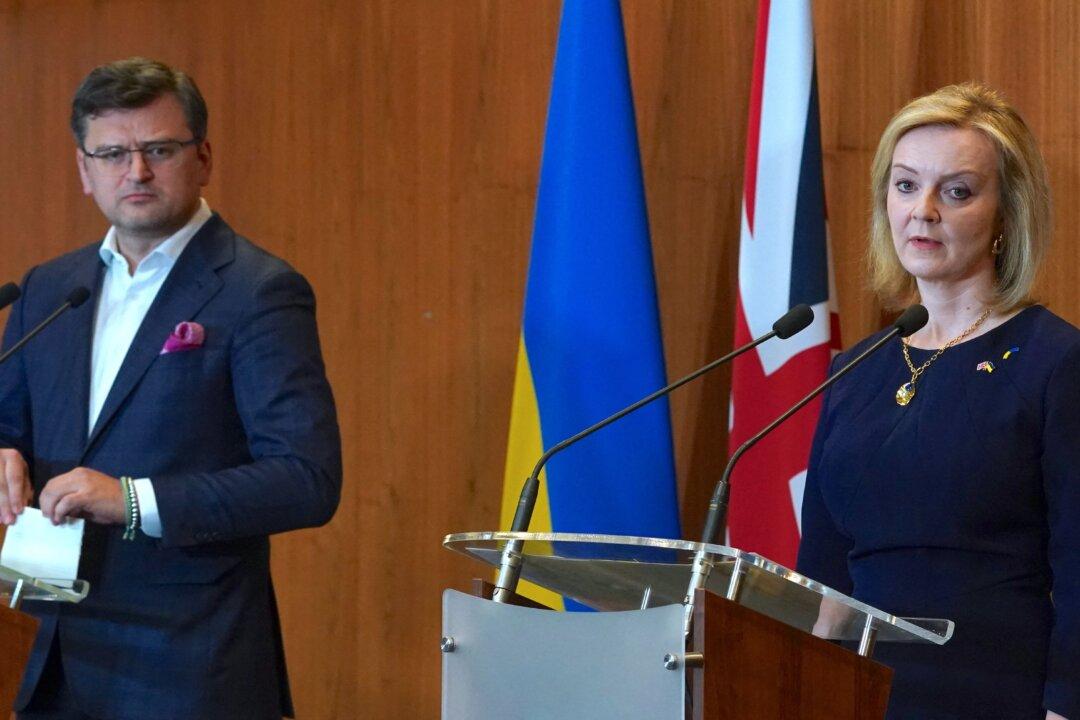Foreign ministers of the UK and Ukraine on Saturday criticised “defeatist voices” from those they said are proposing to “sell out Ukraine for a quick end to the unrelenting horror.”
British Foreign Secretary Liz Truss and her Ukrainian counterpart Dmytro Kuleba said Ukraine and the free world “do not have the luxury to feel fatigued,” and urged leaders of the Group of Seven (G-7) and NATO to renew their support of Ukraine in its resistance to the Russian invasion in the alliances’ meetings this week.





